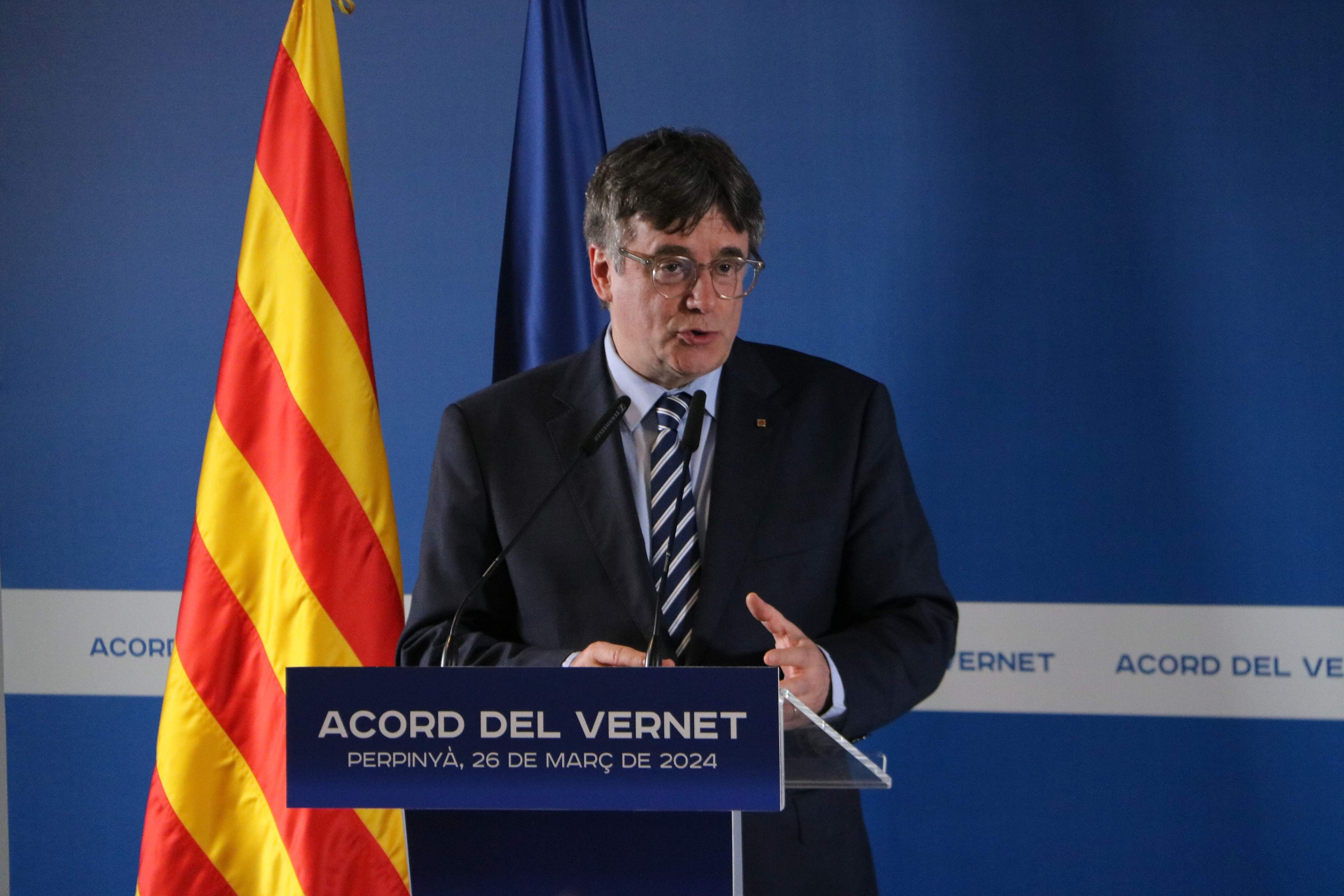He seeks a candidacy that goes beyond his own Together for Catalonia party for the elections on May 12th. And the president-in-exile, Carles Puigdemont, was the protagonist this Tuesday in Perpinyà (Northern Catalonia, in the French state) at the presentation of the Vernet Accord, an agreement with seven minor political parties that will accompany him in a list that the MEP also wants to cross party boundaries. Specifically, Democrates (led by Toni Castellà), Moviment d'Esquerres, Acció per la República, Estat Català (chaired by the former ERC leader, Josep Andreu), Reagrupament, Alternativa Verda and Joventut Republicana have joined. After the signing, Puigdemont made a statement in which he celebrated the "sum of parties and groups that join the call to build a project that governs and leads without leaving any issue to one side". Already in electoral mode, in a clear rebuke to the Catalan Republican Left (ERC), the president-in-exile defended an executive that "does not get started having already given up and does not self-impose limits to its own ambitions". "We propose an initiative in which people can see this desire to have no limits or complexes", he said, in line with working to "finish the job" of October 2017 and "doing it better".
Along these same lines, Puigdemont added that this Tuesday's agreement - for which he wanted to thank the "willingness to add something to the whole from the identity of each one" - must respond to the criterion of "providing a solvent, ambitious government, that looks at the Spanish state on equal terms and will not leave any issue untouched". "We are also aware that it is not just about providing a good government, sometimes there are people who would settle for that, but we also need to recover self-esteem and national ambition to do the work we left half-done, without feeling complexed about it," the MEP asserted. Puigdemont sought to emphasize in his speech that a country "does not progress if there is a government which has given up before it started": "You can leave home having given up by not having ideas or a project, by not making yourself do anything too difficult or by not asserting the interests of Catalans above the interests of the party that governs Spain, but all of this leads to the same surrender and neither one nor the other will be capable of this [current] historical phase after lethargy, parenthesis, repression and surrender". For this reason, the president-in-exile called to "re-do the work, sharing it among all the democratic forces" that worked together for the October 1st referendum.
At the same time, Puigdemont was also highly critical of the Catalan Socialists and the People's Party: "The costs of dependence on the state are very high and unsustainable, and systematically - year after year - the parties that govern in Spain, whether that of the PSC's Illa or of the PP's Fernández, leave eight million people stranded and, at the same time, supercharge Madrid's economy". "This can only be responded to and fought for from Catalonia and with an attitude of firmness that no one whose hands are tied to the Spanish government can have", he said. The Junts leader also criticized that the state "has not made any proposal throughout these very hard years": "No one has denied that the best thing for the future of Catalonia is an independent country. They are only offering us resignation and conformity, and it has become clear that the only thing that can ensure our future and well-being is independence." The politician from Girona concluded his speech by maintaining that the government of a country "has a moral duty to work to have resources, competences and so that when citizens look at the Government with a questioning face, they will find answers and explanations".

